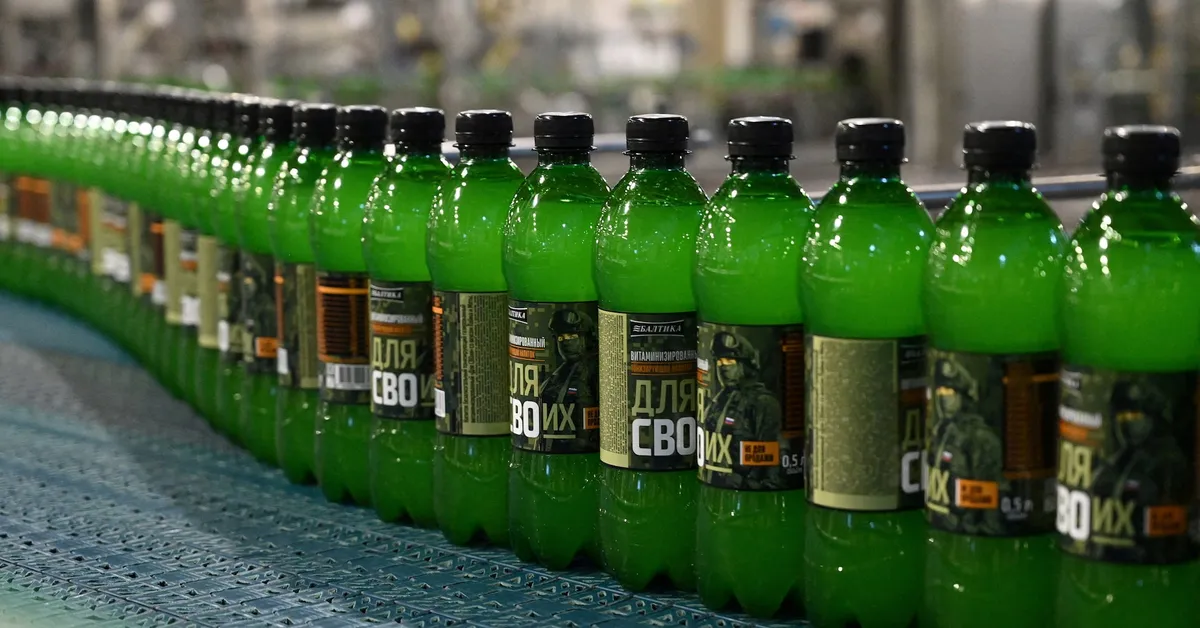
On a dramatic morning in October 2024, the headquarters of Glavprodukt, Russia's largest canned food manufacturer, witnessed a significant takeover. Three men entered the building, one of whom proclaimed himself as the new director general, indicating a shift in control over the company. This unexpected move was orchestrated by Rosimushchestvo, Russia's federal property management agency, as confirmed by both the company's founder and multiple sources familiar with the situation. This takeover was a direct result of a decree issued by President Vladimir Putin, which mandated that Glavprodukt and other assets owned by the U.S. company Universal Beverage come under temporary Russian state management.
The backdrop to this takeover includes U.S. President Donald Trump's efforts to re-establish diplomatic ties with Moscow, which many speculate could lead to the lifting of economic sanctions imposed by the U.S. and its Western allies in response to Russia's invasion of Ukraine. Although Moscow has expressed optimism about the imminent return of U.S. companies to Russia, none have publicly announced plans to do so, raising questions about how Russia can rebuild the trust of Western investors who have suffered significant losses.
According to Septimus Knox, Director of Disputes & Investigations at S-RM, the firm’s temporary management is part of a broader strategy employed by the Russian state to seize assets and redistribute them to loyalists of the regime. This approach has not been beneficial for business operations. Leonid Smirnov, the founder of Glavprodukt, reported a noticeable decline in sales since the takeover, stating, “They have completely taken away my control of my company.” Smirnov, who has lived in the U.S. since fleeing the Soviet Union in the 1970s, established Glavprodukt in Russia during the late 1990s. He noted that a few weeks after the takeover, an online check of Russia's corporate registry revealed the ownership had shifted to a division of the Russian Federation, raising concerns about the permanence of this "temporary change."
The U.S. State Department acknowledged awareness of the seizure of Glavprodukt, but Rosimushchestvo has yet to provide any comments regarding the situation. Knox emphasized the difficulty of reversing such asset seizures, indicating that once a business is placed under state control, its future is largely predetermined. The state’s asset appropriation is not limited to foreign entities; numerous domestic assets are also being seized through legal channels. In January, significant assets, including a leading grain trader and Moscow's Domodedovo airport, were transferred to state ownership.
Western companies operating in Russia are discovering that their legal recourse against such seizures is minimal. For example, Carlsberg announced in June 2023 its intention to sell its stake in Baltika Breweries to an undisclosed buyer, only to be met with swift intervention from the Russian government, which put the assets into temporary management. By December 2024, Carlsberg ultimately sold its stake to two longtime employees for approximately $320 million, a figure considerably below market value. Carlsberg CEO Jacob Aarup-Andersen recounted how the government installed its own management team immediately after the takeover, stripping the company of operational control and financial insight. “To all intents and purposes, we had lost the asset,” Aarup-Andersen stated.
Since the takeover of Glavprodukt, both production and sales have plummeted by around 10%. Reports indicate that several suppliers and customers have severed ties with the company, further complicating its recovery. Meetings have ceased, and employees have not received their yearly bonuses. The new management has begun consolidating operations, placing the company's factories and workforce under a single command structure. Smirnov has suggested that this could be a strategy to force a sale at a significantly reduced price, a fate that has befallen many Western firms exiting Russia in recent years.
Knox noted the inherent risk when managers are appointed based on political loyalty rather than expertise, leading to a decline in asset value and operational quality. As the situation unfolds, the impact of these state actions on foreign investments in Russia continues to be a critical area of concern for international businesses.
For ongoing updates on the evolving landscape of foreign investments in Russia, stay tuned to our news coverage.